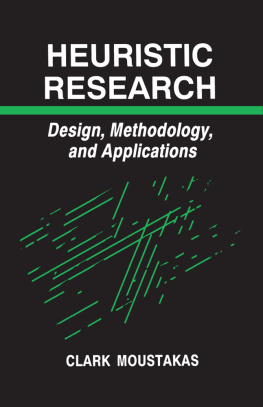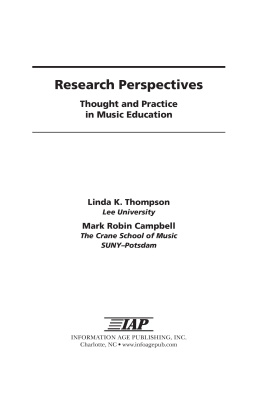CROSS-NATIONAL RESEARCH METHODOLOGY & PRACTICE
Cross-National Research Methodology & Practice offers practical guidance for relative newcomers to cross-national comparative research by analysing and evaluating the research process, focusing strongly on best practice in terms of methods and management. It raises a number of important issues for cross-national researchers which have been given insufficient attention in discussions of methods and practice.
The volume contains reflexive and theoretically based pieces on the development of contextualization as an approach to cross-national comparative research, using qualitative and quantitative methods, extending to the integration of different methodological approaches.
Practical examples are drawn from cross-national research projects to illustrate different methods ranging from:
- biographical and documentary approaches;
- the collection and analysis of socio-demographic and attitudinal survey data either carried out by lone researchers or teams of researchers;
- the exploration of internet sources and application of computer analysis to quantitative and qualitative data.
The collection provides a firm focus on methodological issues relating to context, values and discourse.
This book was previously published as a special issue of Social Research Methodology: Theory & Practice.
Linda Hantrais is Professor of European Social Policy at Loughborough University and Visiting Fellow at the Centre for International Studies, London School of Economics.
Steen Mangen is Senior Lecturer in the Department of Social Policy at the London School of Economics.
CROSS-NATIONAL RESEARCH METHODOLOGY & PRACTICE
Linda Hantrais & Steen Mangen
First published 2007 by Routledge
2 Park Square, Milton Park, Abingdon, Oxon OX14 4RN
Routledge is an imprint of the Taylor & Francis Group, an informa business
Transferred to Digital Printing 2009
2007 Linda Hantrais and Steen Mangen
All rights reserved. No part of this book may be reprinted or reproduced or utilized in any form or by any electronic, mechanical, or other means, now known or hereafter invented, including photocopying and recording, or in any information storage or retrieval system, without permission in writing from the publishers.
British Library Cataloguing in Publication Data
A catalogue record for this book is available from the British Library
ISBN: 0-415-41140-8 (hbk)
ISBN: 0-415-49459-1 (pbk)
ISBN: 978-0-415-41140-0 (hbk)
ISBN: 978-0-415-49459-5 (pbk)
CONTENTS
LINDA HANTRAIS AND STEEN MANGEN
METHODOLOGY
LINDA HANTRAIS
STEEN MANGEN
JANET HARKNESS
PRACTICE
EMMA CARMEL
ANN SINGLETON
MONIKA ZULAUF
LOUISE ACKERS
Published in association with the Social Research Association (SRA). The Social Research Association is open to all those interested or involved in social research. Its main purpose is to advance the conduct, development and use of social research across all sectors.
LINDA HANTRAIS and STEEN MANGEN
Discussion about cross-national social research methods has centred on at least three fundamental considerations. A long-standing debate has revolved around the question of whether cross-national social research constitutes a legitimated set of methods in its own right, or is merely a manifestation of more general issues arising in the field. Genericists have insisted that, despite specific constraints in operationalizing methods in international settings, there are no distinct cross-national methods per se. Others advance the argument that paramount problems to do with language, space and culture are sufficient to justify particularism as a research entity.
A second facet relates to the competing objectives of cross-national investigation. Much of the officially sponsored policy research is primarily dictated by pressures to extract lessons from the homeland. Only in more recent times has a more robust scientific agenda been established with attempts to construct reasonably well-defined models and, in limited cases, to test theory. Often, effort has been handicapped by methodology which restricts samples to very narrow most similar countries, and which imposes too brief a time scale to disentangle the social, cultural, economic and political variables. To these must be added the tendency in quantitative comparative research for over-reliance on highly-aggregated data, which exposes the researcher to the dangers of a large degree of multicolinearity.
Finally, frustrations are ever present in reaching effective management of projects, leading to the colonialization of methods, dominance of research approaches and, leadership by particular academic and national traditions.
For these reasons, much of the literature on the cross-national comparative research process tends to give precedence to thematic content and findings rather than focusing on the theory and practice of the research. The growing interest in cross-national comparisons within the social sciences since the 1970s has not, therefore, been matched by commensurate advances at the theoretical and practical level. As a result, the material collected in international projects is often not directly comparable, and the findings reported to sponsors may be biased or misleading.
The aim of Cross-National Research Methodology & Practice is to contribute to the theoretical basis of research that crosses national boundaries and to offer practical guidance for relative newcomers to cross-national research by analysing and evaluating the research process. The contributions include reflexive and theoretically-based pieces on the development of contextualization as an approach to cross-national comparative research, on qualitative and quantitative methods, extending to the integration of different methodological approaches. Shorter articles exemplify the practice of carrying out cross-national comparisons, focusing again on analysis of the research process. All the papers provide practical examples from cross-national research projects, illustrating different methods which range from biographical and documentary approaches, the collection and analysis of socio-demographic and attitudinal survey data, whether carried out by lone researchers or teams, the exploration of internet sources, and application of computer analysis to quantitative and qualitative data. A theme common to three of the shorter papers is the study of migration. They raise a number of important issues for cross-national research that have not, hitherto, been given sufficient attention in discussions of methods and practice.
LINDA HANTRAIS
Introduction
The many definitions of cross-national comparative research in the social sciences have in common their concern to observe social phenomena across nations, to develop robust explanations of similarities or differences, and to attempt to assess their consequences, whether it be for the purposes of testing theories, drawing lessons about best practice or, more straightforwardly, gaining a better understanding of how social processes operate. Much of the comparative research undertaken in the early postwar period, particularly the large-scale studies carried out by political scientists in the USA, aimed to produce generalizations from the US experience, assuming them to be universally applicable. At the other extreme, proponents of culturalist explanation upheld that social reality could only be properly understood within the context in which it occurs, and that all findings are conditioned by spatial and temporal factors, and are not, therefore, amenable to generalization. In attempting to reconcile these two conflicting approaches, another body of cross-national comparative research has sought to identify general factors within social systems that can be interpreted with reference to specific societal contexts.





